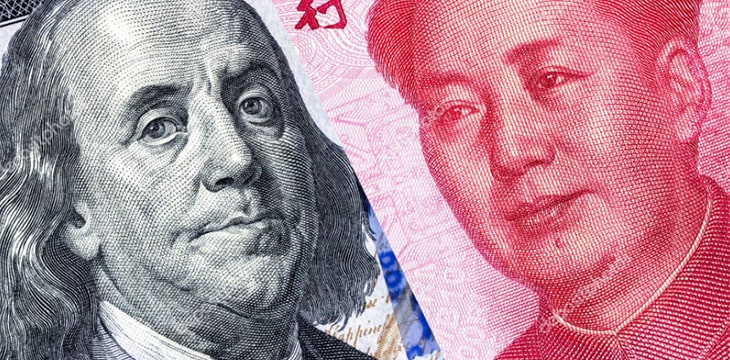|
Getting your Trinity Audio player ready...
|
Regular CoinGeek readers will have already read some of our extensive coverage of the digital yuan. The People’s Bank of China (PBoC) has beaten every other economically powerful nation to the punch in developing a central bank digital currency (CBDC), and it looks like it’s positioning it to be a USD challenger.
Right now, the e-CNY is in the final stages of its pilot program. The plan is to have it ready for the Beijing Winter Olympics next month. Both locals and visitors will be able to use it. As of now, the digital wallet associated with the e-CNY has been launched in both the Android and Apple app stores, and Chinese tech giant Tencent has made it available in WeChat Pay, the country’s largest chat application. So far, 140 million personal wallets have been created, along with a further 10 million corporate wallets.
As the official launch approaches, the China Daily has published another article positioning the Chinese CBDC as a challenger to dollar dominance.
What did the China Daily article say?
The article noted China’s huge lead over the U.S. in creating a CBDC. While America has still to make its mind up on whether it even wants to create an e-dollar, China has a working CBDC in place.
It also noted that the U.S. is probably a decade away from creating an e-dollar if it decides to do so. This timeframe is estimated by Harvard economist Kenneth Rogoff who is on the steering committee of the Group of Thirty working on digital currencies.
The piece is one of many mixed signals sent by China regarding its e-CNY intentions. Mu Changchun, the head of China’s Digital Currency Research Institute, has usually focused on the CBDC’s domestic uses. However, he has also commented that it can safeguard China’s monetary sovereignty and help “avoid dollarization.” China’s central bank is also part of a cross-border payments project between the central banks of China, Thailand, Hong Kong, and the UAE.
Can the digital yuan really unseat the U.S. dollar?
It’s important to remember that the China Daily is a media arm of the Communist Party of China (CPC), so its articles serve a political agenda. The reality is that replacing the U.S. dollar as the world reserve currency is a much bigger task than releasing a CBDC before the United States. To say the goal is still a long way off is an understatement.
The reality is that right now, the U.S. dollar makes up 51% of central bank reserves while the CNY makes up 2%. Likewise, the U.S. dollar is involved in 88% of global FX transactions, a figure that has remained stable for the last two decades despite China’s meteoric growth, while the CNY is involved in only 2% of global FX trades.
There are also political hurdles to overcome. The U.S. has the deepest capital markets and is still the global financial epicenter. Unseating the dollar would also mean the CPC has to let go of its control over the CNY and allow it to float freely on global FX markets, something it has been reluctant to do, preferring a fixed exchange rate set by the government. Also, if the CPC’s recent moves indicate anything, they signal moves toward a more controlled economy rather than liberalization. This is unlikely to help Beijing in its quest to make the CNY the preferred currency for world trade.
Still, the speed at which China has developed and rolled out its e-CNY is hugely impressive. We’ll continue reporting on it as it develops.
Watch: CoinGeek New York presentation, BSV Blockchain in China
https://www.youtube.com/watch?v=wGw6rBv7nlc&t=14772s
Recommended for you
The views expressed in this article are those of the author and do not necessarily reflect the position of CoinGeek.

 03-05-2026
03-05-2026 




